
Arts Book Review: Nick Toczek Wool City Rocker
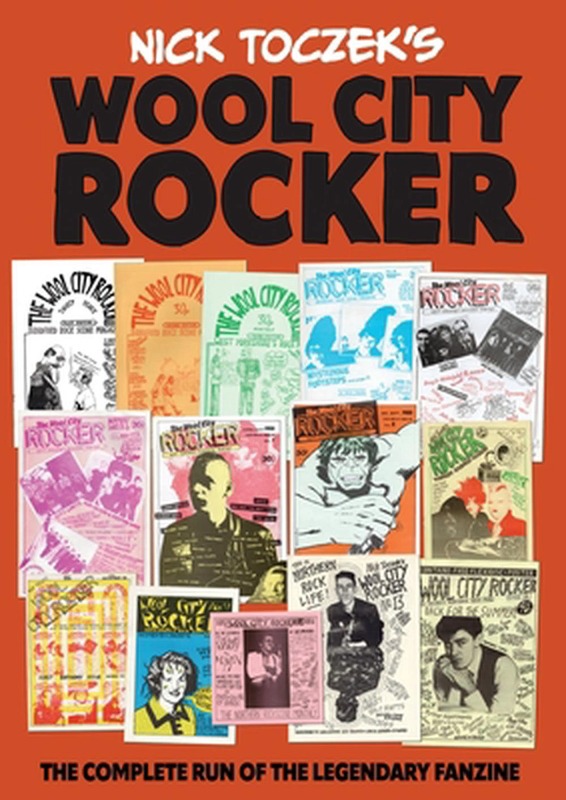
Earth, Fire: Notes On Burials By Jayant Kashyap
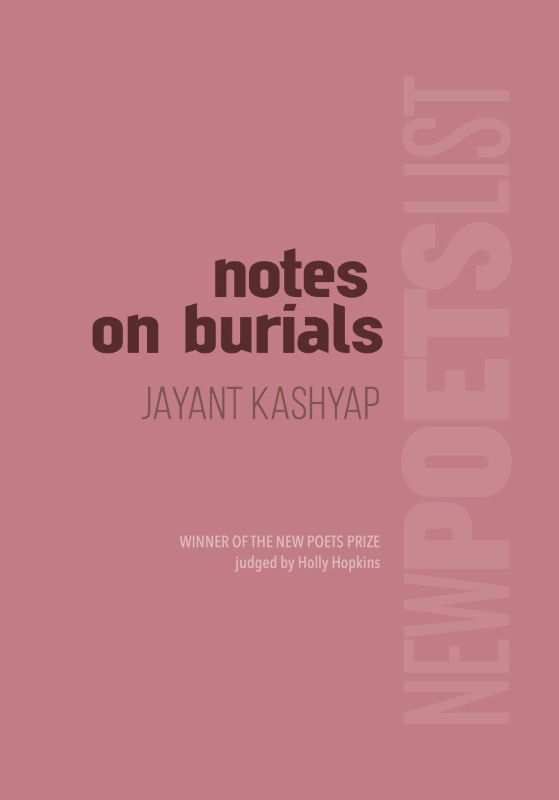 The etymology of words plays much more than a passing role in Jayant Kashyap’s award-winning new collection for Poetry Business: his journey into the katabatic underworld of ritual and cultural observance is illuminated, at every turn, by recourse to the guideposts of language.
The etymology of words plays much more than a passing role in Jayant Kashyap’s award-winning new collection for Poetry Business: his journey into the katabatic underworld of ritual and cultural observance is illuminated, at every turn, by recourse to the guideposts of language.
Vision & Labour: Making Comics: The Art Of Avery Hill Publishing
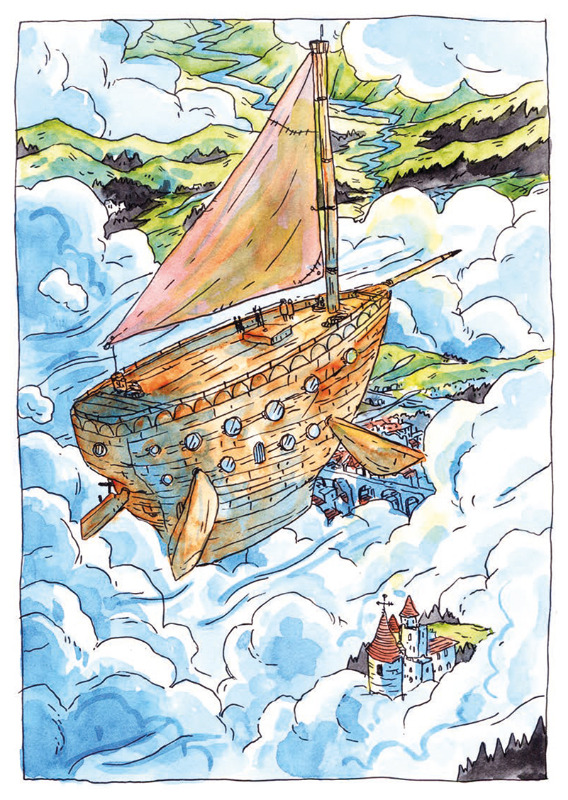 Harrogate’s Mercer Art Gallery has teamed up with indie publisher Avery Hill Publishing to create an exhibition showcasing some of today’s most exciting comics creators.
Harrogate’s Mercer Art Gallery has teamed up with indie publisher Avery Hill Publishing to create an exhibition showcasing some of today’s most exciting comics creators.
Poem Of The Week: The Sick Rose by William Blake (1757-1827)
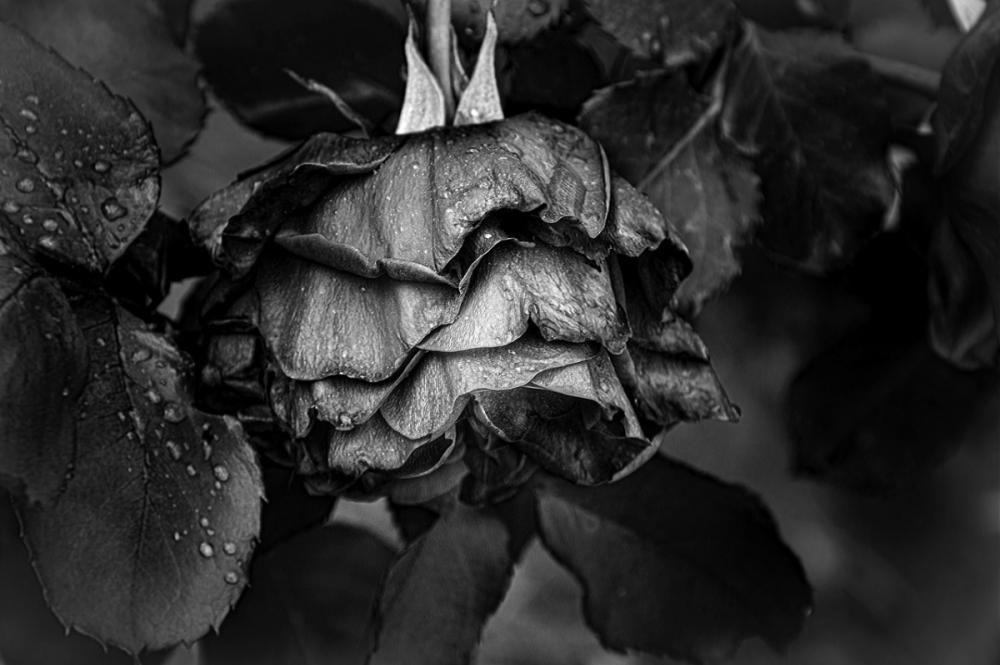 The Sick Rose O rose, thou art sick!
The Sick Rose O rose, thou art sick!
Whitby Gets Ready For Inaugural Book Festival
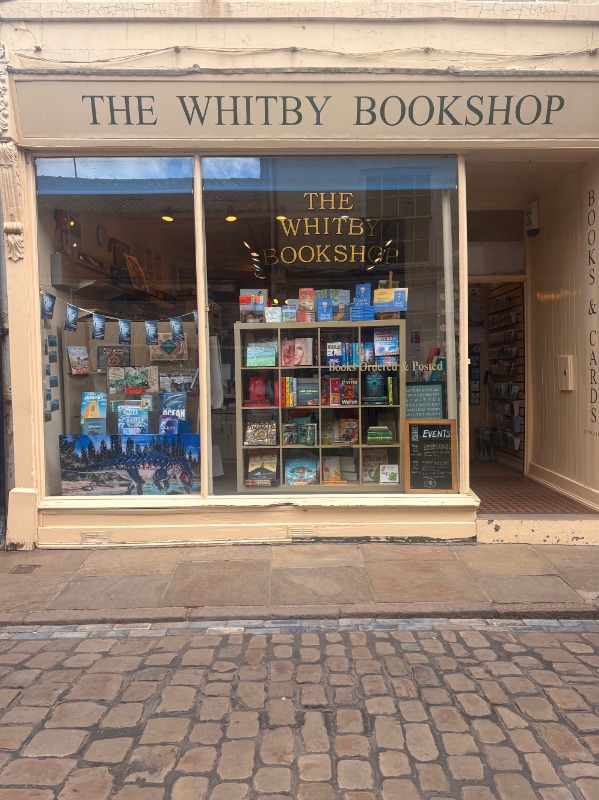 Whitby is getting behind its inaugural literature festival which begins Thursday 6 November in venues across the coastal town. Schools, hotels, shops, and restaurants are getting behind the four-day celebration of Whitby as a literary destination.
Whitby is getting behind its inaugural literature festival which begins Thursday 6 November in venues across the coastal town. Schools, hotels, shops, and restaurants are getting behind the four-day celebration of Whitby as a literary destination.
This Week’s Highlights At Ilkley Literature Festival
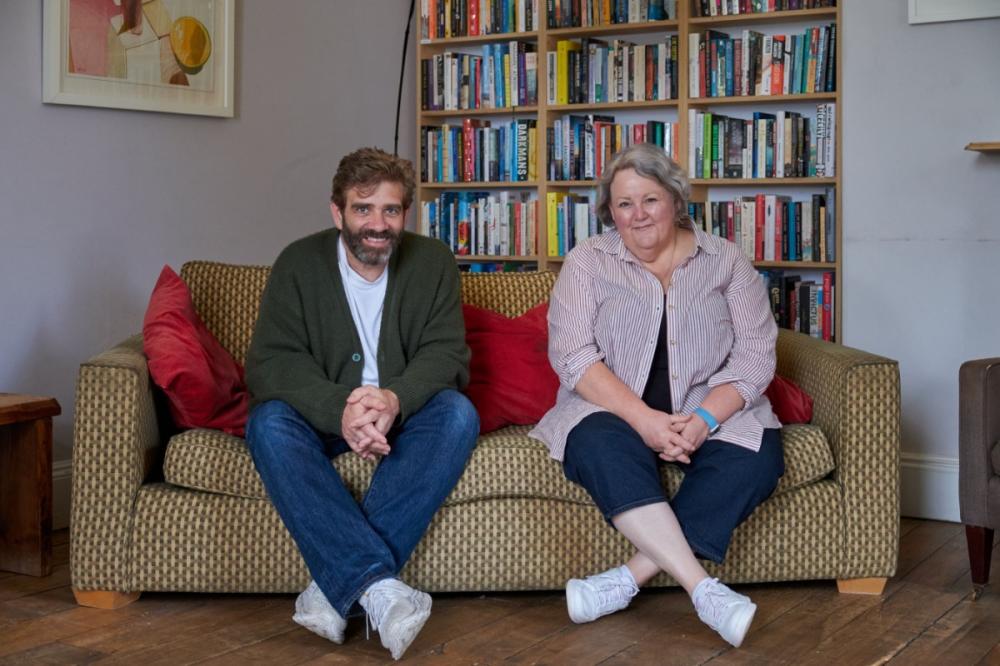 Ilkley Literature Festival enters its final week with highlights including Hugh Bonneville, Sir Tony Robinson, and Jay Rayner. Several upcoming acts are sold out including Lady Hale, Wild Swans author Jung Chang, Irvine Welsh, and Michael Palin.
Ilkley Literature Festival enters its final week with highlights including Hugh Bonneville, Sir Tony Robinson, and Jay Rayner. Several upcoming acts are sold out including Lady Hale, Wild Swans author Jung Chang, Irvine Welsh, and Michael Palin.
A Kind Of Alchemy: The Secret Collector By Abigail Johnson
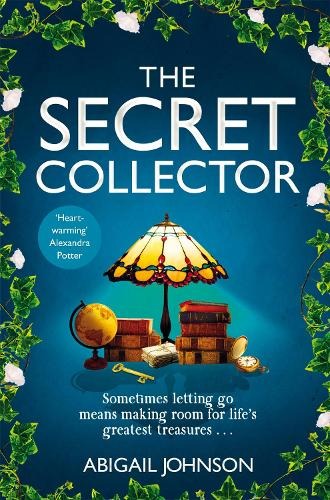 I loved this book! Will that do? Probably not, so let me try to explain why.
I loved this book! Will that do? Probably not, so let me try to explain why.
Rising Star Colwill Brown Wins 20th Anniversary BBC National Short Story Award
 Doncaster-born novelist and short story writer, Colwill Brown has won the twentieth anniversary BBC National Short Story Award with Cambridge University (NSSA) for You Cannot Thead a Moving Needle a ‘tense’ and ‘increasingly heartbreaking’ story exploring the long term effects of trauma told in ‘energetic’ South Yorkshire dialect.
Doncaster-born novelist and short story writer, Colwill Brown has won the twentieth anniversary BBC National Short Story Award with Cambridge University (NSSA) for You Cannot Thead a Moving Needle a ‘tense’ and ‘increasingly heartbreaking’ story exploring the long term effects of trauma told in ‘energetic’ South Yorkshire dialect.
Doncaster Author Colwill Brown Shortlisted For BBC National Shortstory Award 2025
 The 2025 BBC National Short Story Award with Cambridge University (BBC NSSA) shortlist was announced on the evening of Thursday 11 September 2025 on BBC Radio 4’s Front Row. The prestigious award os celebrating its 20th anniversary.
The 2025 BBC National Short Story Award with Cambridge University (BBC NSSA) shortlist was announced on the evening of Thursday 11 September 2025 on BBC Radio 4’s Front Row. The prestigious award os celebrating its 20th anniversary.
‘I Write, I Act, I Change’: Alice Carver Manifests Her Perfect Life By Hannah Lake
 This novel has echoes of Bridget Jones and I was a bit, ‘well, it’s been done before…’. I adored Bridget Jones and rolled on the floor laughing (ROFL, I’ve been told) when I first read it.
This novel has echoes of Bridget Jones and I was a bit, ‘well, it’s been done before…’. I adored Bridget Jones and rolled on the floor laughing (ROFL, I’ve been told) when I first read it.
The Scarbados Trilogy Is Complete And All Is Revealed
.jpeg) Andrew Liddle sits down with Mark Harland whose latest book answers the questions his readers have been asking … Hot off the press is The New Hotel, Scarbados, the eagerly-awaited third volume of Mark Harland’s compelling tale of a Hull family which refuses to be beaten by the twin adversaries of lockdown and redundancy.
Andrew Liddle sits down with Mark Harland whose latest book answers the questions his readers have been asking … Hot off the press is The New Hotel, Scarbados, the eagerly-awaited third volume of Mark Harland’s compelling tale of a Hull family which refuses to be beaten by the twin adversaries of lockdown and redundancy.
Follow Your Dreams: Same Time Next Week By Milly Johnson
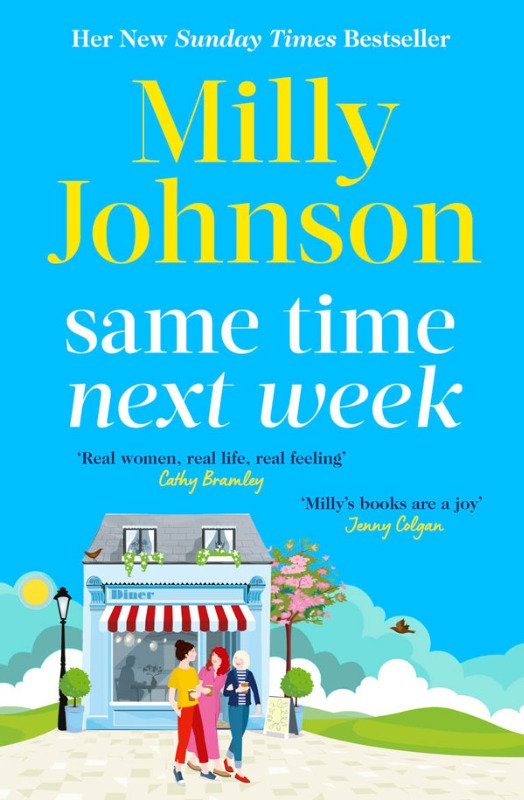 I even loved the dedication in this book – so true and one to which everyone can relate. So, a good start. Life is a jigsaw, made up of many pieces. To recognise the fact and to be grateful that each piece, good and bad, creates the whole, offers a certain contentment, or so I believe.
I even loved the dedication in this book – so true and one to which everyone can relate. So, a good start. Life is a jigsaw, made up of many pieces. To recognise the fact and to be grateful that each piece, good and bad, creates the whole, offers a certain contentment, or so I believe.
Poem Of The Week: The Grocer By Craig Raine
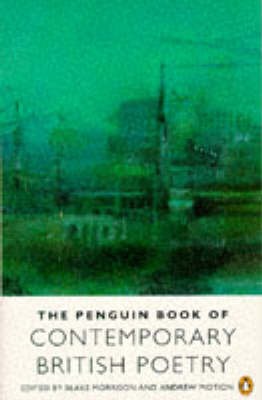 The Grocer ‘the Kingdom of God cometh not with observation’ (James Joyce to Lady Gregory) The grocer’s hair is parted like a feather by two swift brushes and a dab of brilliantine. His cheesewire is a sun-dial selling by the hour. He brings it down at four and five o’clock, the wooden T gripped like a corkscrew. Greaseproof squares curl in diamonds on a hook.
The Grocer ‘the Kingdom of God cometh not with observation’ (James Joyce to Lady Gregory) The grocer’s hair is parted like a feather by two swift brushes and a dab of brilliantine. His cheesewire is a sun-dial selling by the hour. He brings it down at four and five o’clock, the wooden T gripped like a corkscrew. Greaseproof squares curl in diamonds on a hook.
Whitby Lit Fest Announce Inaugural Programme
.jpeg) A celebrated playwright, a national treasure, and a host of bestselling authors and household names take part in the first ever Whitby Lit Fest. More than 50 authors will take part in venues across the coastal town from Thursday 6 to Sunday 9 November.
A celebrated playwright, a national treasure, and a host of bestselling authors and household names take part in the first ever Whitby Lit Fest. More than 50 authors will take part in venues across the coastal town from Thursday 6 to Sunday 9 November.
Theakston Old Peculier Crime Writing Festival Celebrates Most Successful Event Ever
 Gerard Binks (212).jpg) The Theakston Old Peculier Crime Writing Festival celebrates its most successful event ever after record numbers of crime fiction fans from around the world flocked to the Old Swan Hotel, Harrogate to enjoy more than 30 events with 120 authors over four days, 17-20 July.
The Theakston Old Peculier Crime Writing Festival celebrates its most successful event ever after record numbers of crime fiction fans from around the world flocked to the Old Swan Hotel, Harrogate to enjoy more than 30 events with 120 authors over four days, 17-20 July.
Poem Of The Week: God's Grandeur By Gerard Manley Hopkins (1844-1889)
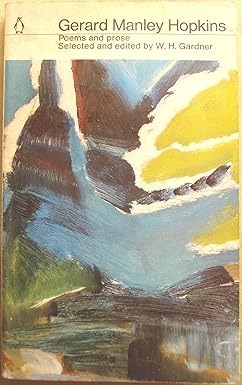 God's Grandeur The world is charged with the grandeur of God. It will flame out, like shining from shook foil; It gathers to a greatness, like the ooze of oil Crushed. Why do men then now not reck his rod?
God's Grandeur The world is charged with the grandeur of God. It will flame out, like shining from shook foil; It gathers to a greatness, like the ooze of oil Crushed. Why do men then now not reck his rod?
The Seed In The City: The Holdings – A Poetry Anthology From Leeds Irish Health And Homes
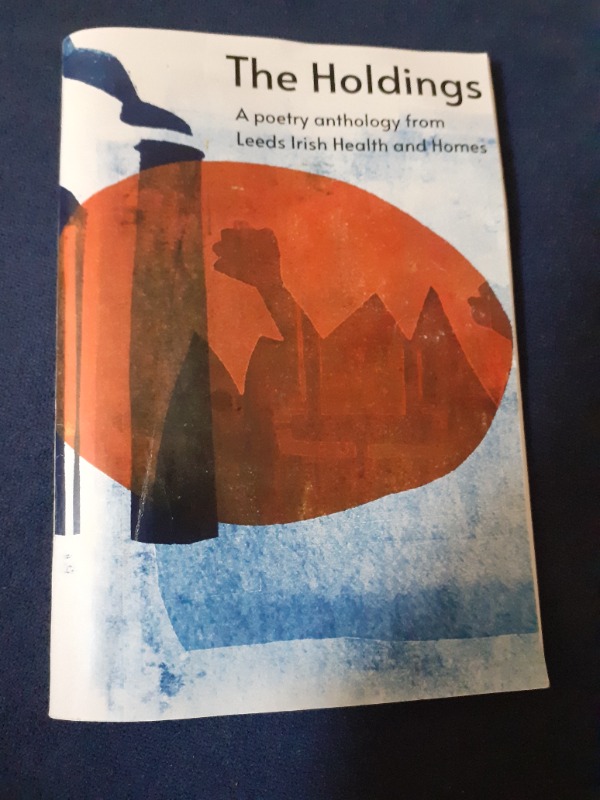 The latest anthology of poetry from Leeds Irish Health and Homes is defined most clearly by its obvious sincerity.
The latest anthology of poetry from Leeds Irish Health and Homes is defined most clearly by its obvious sincerity.
Sir Alan Ayckbourn Joins Line-Up For Inaugural Whitby Literature Festival
 Sir Alan Ayckbourn, one of Britain’s most celebrated playwrights, will feature at the inaugural Whitby Lit Fest. The award-winning playwright joins the festival’s headline authors already announced, the blockbuster thriller writer Lee Child and the broadcaster, barrister and author, Rob Rinder.
Sir Alan Ayckbourn, one of Britain’s most celebrated playwrights, will feature at the inaugural Whitby Lit Fest. The award-winning playwright joins the festival’s headline authors already announced, the blockbuster thriller writer Lee Child and the broadcaster, barrister and author, Rob Rinder.
The Tension Mounts: I Will Ruin You By Linwood Barclay
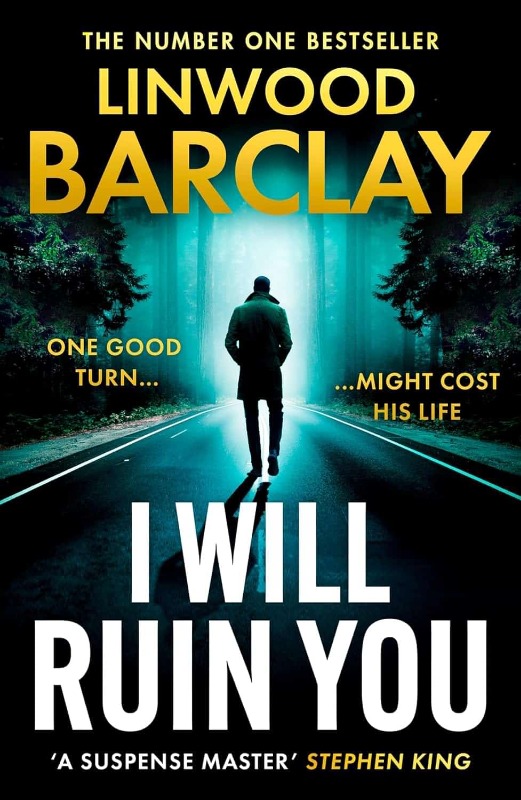 The first couple of pages of this psychological thriller got me thinking. We are all shocked by media reports of stabbings and shootings. We live in an increasingly violent society and hope quickly dwindles when such events occur in a school, where our children are meant to be safe. We send our innocents to school each day in the expectation that they will return home unharmed.
The first couple of pages of this psychological thriller got me thinking. We are all shocked by media reports of stabbings and shootings. We live in an increasingly violent society and hope quickly dwindles when such events occur in a school, where our children are meant to be safe. We send our innocents to school each day in the expectation that they will return home unharmed.
Poem Of The Week: Dark Peak, February By Alison Binney
 Dark Peak, February stone walls lean green-furred faces into horizontal hail snowdrops nod huddled heads at mute daffodil spears starlings witter and wheel tumbling to earth like leaves water gnaws the track’s edge where the chaffinch hops under lightning-black twigs catkins dance like drying socks Whilst tangential to the prevailing tenor of her fine new collection, Ali…
Dark Peak, February stone walls lean green-furred faces into horizontal hail snowdrops nod huddled heads at mute daffodil spears starlings witter and wheel tumbling to earth like leaves water gnaws the track’s edge where the chaffinch hops under lightning-black twigs catkins dance like drying socks Whilst tangential to the prevailing tenor of her fine new collection, Ali…
Shortlists For Theakston Old Peculier Crime Novel Of The Year 2025 And McDermid Debut Award Revealed
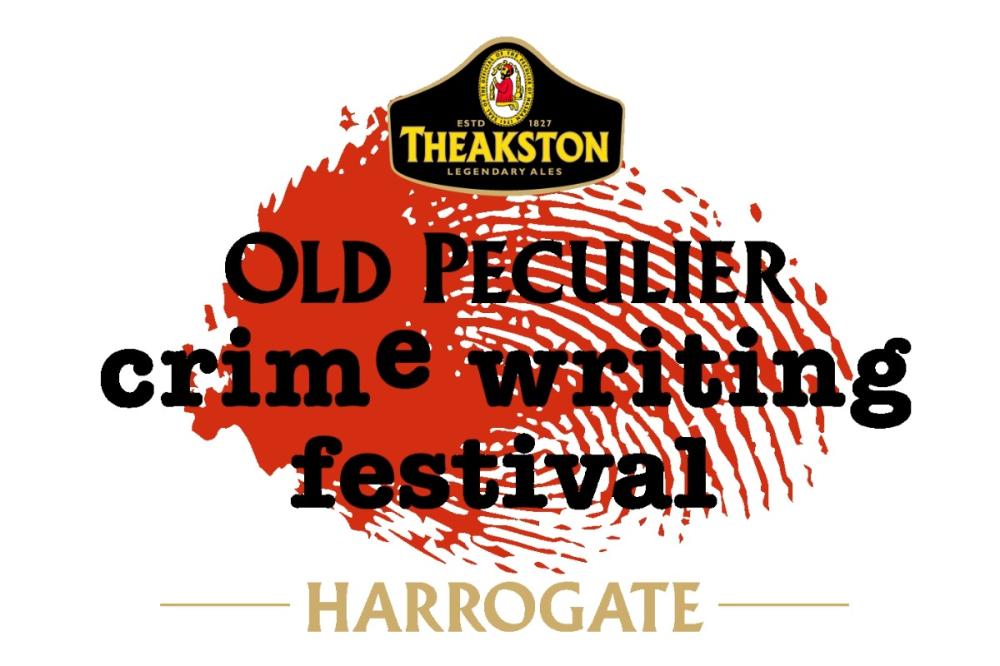 Harrogate International Festivals has announced the shortlists for the Theakston Old Peculier Crime Novel of the Year 2025, the UK and Ireland’s most prestigious crime fiction award, and the McDermid Debut Award for new writers. The winners of both awards will be revealed on the opening night of the Theakston Old Peculier Crime Writing Festival, Thursday 17 July.
Harrogate International Festivals has announced the shortlists for the Theakston Old Peculier Crime Novel of the Year 2025, the UK and Ireland’s most prestigious crime fiction award, and the McDermid Debut Award for new writers. The winners of both awards will be revealed on the opening night of the Theakston Old Peculier Crime Writing Festival, Thursday 17 July.
Former Journalists Introduce A New Crime Heroine
 A husband-and-wife duo, who both trained as journalists at the BBC and first met as regional reporters for Yorkshire TV, have written a debut crime fiction novel together, Mind Over Murder. Jake Lynch, who grew up near Grimsby, was a news anchor and reporter on the launch of Network North, a regional evening news programme by Yorkshire Tyne Tees, co-presented with Dawn Thewlis, in 1993.
A husband-and-wife duo, who both trained as journalists at the BBC and first met as regional reporters for Yorkshire TV, have written a debut crime fiction novel together, Mind Over Murder. Jake Lynch, who grew up near Grimsby, was a news anchor and reporter on the launch of Network North, a regional evening news programme by Yorkshire Tyne Tees, co-presented with Dawn Thewlis, in 1993.
Poem Of The Week: Nurse at a Bus Stop By Simon Armitage
 Nurse at a Bus Stop The slow traffic takes a good long look. Jilted bride of public transport, alone in the shelter, the fireproof bin and shatter-proof glass scrawled with the cave-art of cocks and hearts. It’s late, Friday, the graveyard shift, you’re ready to dab blood from a split lip, to hold the hand of cancer till the line goes flat.
Nurse at a Bus Stop The slow traffic takes a good long look. Jilted bride of public transport, alone in the shelter, the fireproof bin and shatter-proof glass scrawled with the cave-art of cocks and hearts. It’s late, Friday, the graveyard shift, you’re ready to dab blood from a split lip, to hold the hand of cancer till the line goes flat.
The Spy Ring: Not The work Of An Ordinary Boy by Victoria L. Humphreys
.webp) Pigeons have long been regarded as pests, culled from Trafalgar Square at least once I believe, and regularly shooed from my garden when I have put out bread to attract an array of garden birds (I particularly like robins, blue tits, blackbirds, and am delighted when I see the occasional redwing or goldfinch) only to watch the pigeons try to hoover it all up before anyone else gets a chance.
Pigeons have long been regarded as pests, culled from Trafalgar Square at least once I believe, and regularly shooed from my garden when I have put out bread to attract an array of garden birds (I particularly like robins, blue tits, blackbirds, and am delighted when I see the occasional redwing or goldfinch) only to watch the pigeons try to hoover it all up before anyone else gets a chance.
‘The Words I Speak Are Too Big For My Mouth’*: Karin Boye’s Kallocain
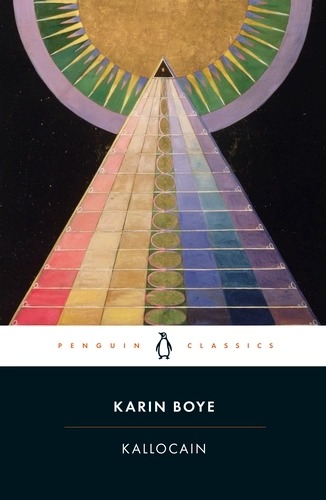 When I think I’ve read everything dystopian, particularly from the genre’s early 20th century heyday, another gem appears on my radar. Karin Boye’s Kallocain joins the ranks of Brave New World and 1984 in its depiction of an authoritarian superstate.
When I think I’ve read everything dystopian, particularly from the genre’s early 20th century heyday, another gem appears on my radar. Karin Boye’s Kallocain joins the ranks of Brave New World and 1984 in its depiction of an authoritarian superstate.
Review: Leeds Playhouse - A Tale Of Two Theatres By Dave Stannard
 There is something admirable about the struggle to create an enduring monument to the theatrical Arts in any regional city.
There is something admirable about the struggle to create an enduring monument to the theatrical Arts in any regional city.
Push-Me, Pull You: Finding Home In Hartnell By Suzanne Snow
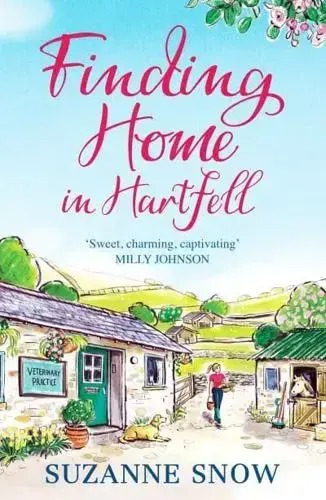 My reading tastes are eclectic and sometimes, I feel the need to have a rest from some of the heavier, emotionally draining stuff I incline to, so made time for this easy-to-read romantic novel which provides pretty much what you would expect.
My reading tastes are eclectic and sometimes, I feel the need to have a rest from some of the heavier, emotionally draining stuff I incline to, so made time for this easy-to-read romantic novel which provides pretty much what you would expect.
Nation Of Interrupted Readers: Nearly Half Of UK Adults Say Distraction Stops Them Reading
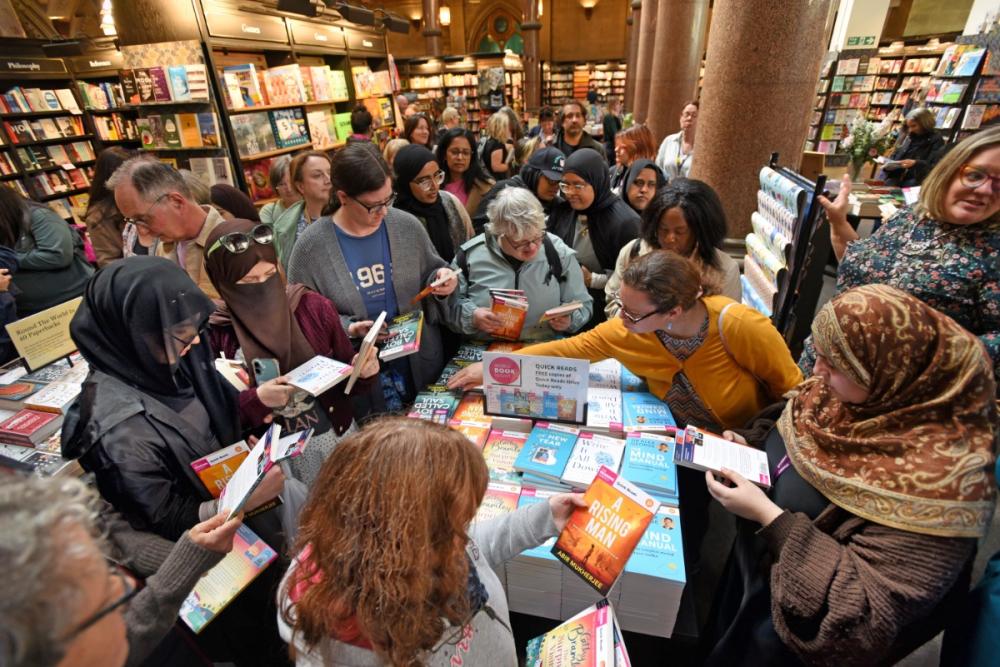 The Reading Agency’s ‘State of the Nation in Adult Reading 2025’ report reveals a growing reading crisis, especially among younger adults, who report distraction as one of the most common barriers to reading for pleasure in the UK.
The Reading Agency’s ‘State of the Nation in Adult Reading 2025’ report reveals a growing reading crisis, especially among younger adults, who report distraction as one of the most common barriers to reading for pleasure in the UK.
City Of Culture Turns Page For World Book Night
.JPG)
Rocket Science, Secrets And Reconciliation: A Daughter’s Cold War Odyssey
.png) When I picked up The Gorodomlya Island Project, I expected to learn something about Soviet rocket technology. What I found instead was a gripping Cold War narrative that blends historical revelation with personal redemption.
When I picked up The Gorodomlya Island Project, I expected to learn something about Soviet rocket technology. What I found instead was a gripping Cold War narrative that blends historical revelation with personal redemption.